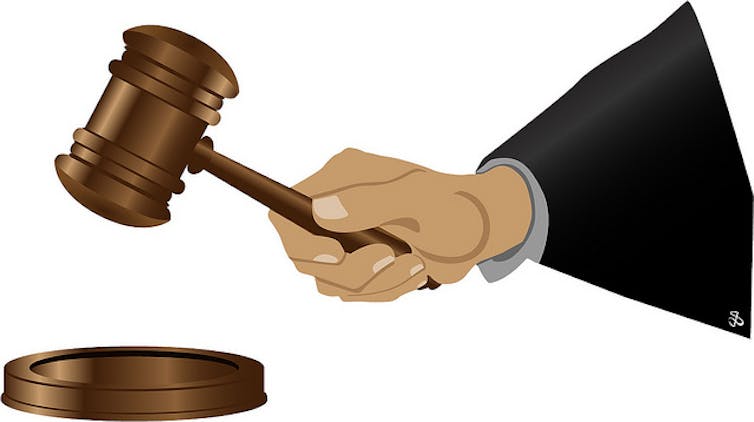One hundred years of rigorous scientific research hasn’t dented the faith of adherents of homeopathy. The complementary therapy is still centred on the notion that water has a therapeutic “memory” and that undetectable compounds have a physiological, rather than psychological, effect.
Attempts to regulate or restrict the claims of homeopaths are currently underway. But it might take a legal challenge to ultimately stop homeopaths from promoting cures and treatments that simply don’t work.
Before I explain how, I’ll fill you in on some of the recent background.
After a succession of reports showed homeopathy to be a pseudo-science, it’s likely Australia’s National Health and Medical Research Council will advise that it’s “unethical for health practitioners to treat patients using homeopathy, for the reason that homeopathy (as a medicine or procedure) has been shown not to be efficacious”.
This follows a 2010 report by the United Kingdom’s House of Commons Science & Technology Committee, which similarly commented that “beyond ethical issues and the integrity of the doctor-patient relationship, prescribing pure placebos is bad medicine”. The committee said further clinical trials of homeopathy were unjustifiable, but in the meantime, the National Health Service should stop subsidisng the treatment.
Earlier this month, Australian Chief Medical Officer Chris Baggoley began a 12-month investigation to determine which, if any, natural therapies are clinically effective. After that period, the government’s private health insurance rebate will cease to cover homoepathy, reiki and other therapies that aren’t evidence based.
But the removal of the rebate is largely symbolic. It won’t dent the faith of many adherents. And, given the public’s appetite for funky miracle cures, it won’t drive charlatans out of the market.
Complementary profits
Homeopathy, along with other forms of complementary medicine such as “magic touch”, is big business. The Commonwealth estimates the complementary medicines industry is worth at $1.2 billion a year, with an annual growth of up to 12%.
But the key regulator, the Therapeutic Goods Administration (TGA), is struggling to get a hold of the industry and has been accused of institutional incapacity. Most recently, the watchdog has been embroiled in problems with its lack of transparency, and its oversight of faulty hip and breast implants and weight loss products.
Legal solution?
There is one light on the horizon. It comes from Canada, where a leading law firm has launched a C$30m class action – bringing together a large number of complainants – against a multinational company that is marketing Oscillococcinum, a homeopathic anti-flu product.
The litigants are seeking compensation under Canadian consumer protection law. In essence, they argue the sale of the product is fraudulent: the supposedly therapeutic product is “overpriced sugar… the extreme dilutions used to make it ensure there is not a single molecule left of its supposed medicinal ingredient”.

The class action has not yet been tested in court and the manufacturer will presumably defend its product. But as an indication of the likely outcome, a related litigation in the United States reportedly concluded with a US$12m settlement. The litigants claimed that the manufacturer violated state “unfair competition and false advertising” laws, given there were no detectable active ingredients.
The manufacturer was forced to add a disclaimer to the products, indicating its claims haven’t been evaluated by the US Food & Drug Administration. The labels must also provide an explanation of how the active ingredients have been diluted. The repackaging is estimated to cost US$7m.
Potential Australian litigation
We haven’t yet seen such a class action against providers of homeopathic products. But it’s not precluded by Australian laws, such as the national Competition & Consumer Act 2010. And given the emergence of a class action industry, law suits against vendors of over-the-counter homeopathic pills and potions are probably in the pipeline.
Litigation alone could be enough to prompt manufacturers wind back claims about the efficacy of their concoctions, and lead us towards greater truth in advertising. An informed public might be appropriately reluctant to hand over the cash when reminded that a central tenet of homeopathy is the “law of the infinitesimal dose” - the more dilute the remedy, the greater its potency.
If homeopathic products are acknowledged as having no pharmacologically active ingredients, they can presumably be sold as lolly water. These harmless substances don’t need to be regulated as medications or “supplements” but cannot claim medicinal properties.
If, on the other hand, they are promoted as having active ingredients – rather than a “memory” of having once come into contact with something active – those claims can and should be put to the test.
If the magic ingredient is undetectable, an Australian court might reasonably infer that the ingredient is not present in the “remedy” and that any therapeutic benefit is entirely attributable to the consumer’s faith. In other words, it’s entertainment or a quasi-religious belief rather than medicine.
Such a finding would act as a wake-up call for Australian academia – in particular institutions that rely on the revenue from alternative therapy courses.
It might also encourage policymakers to reconsider the regulatory responsibilities of the TGA and the Australian Competition & Consumer Commission (ACCC). In practice, the ACCC acts as the regulator of complementary medicines through restrictions on misleading advertising. It has, for example, warned that suppliers “must ensure that they are not claiming supposed benefits when there is no supportive scientific evidence”.
Most importantly, a court ruling would encourage the Australian community to adopt a more fact-based view of complementary medicine – in particular, to differentiate between what is merely entertainment and what has a tinge of credibility.

